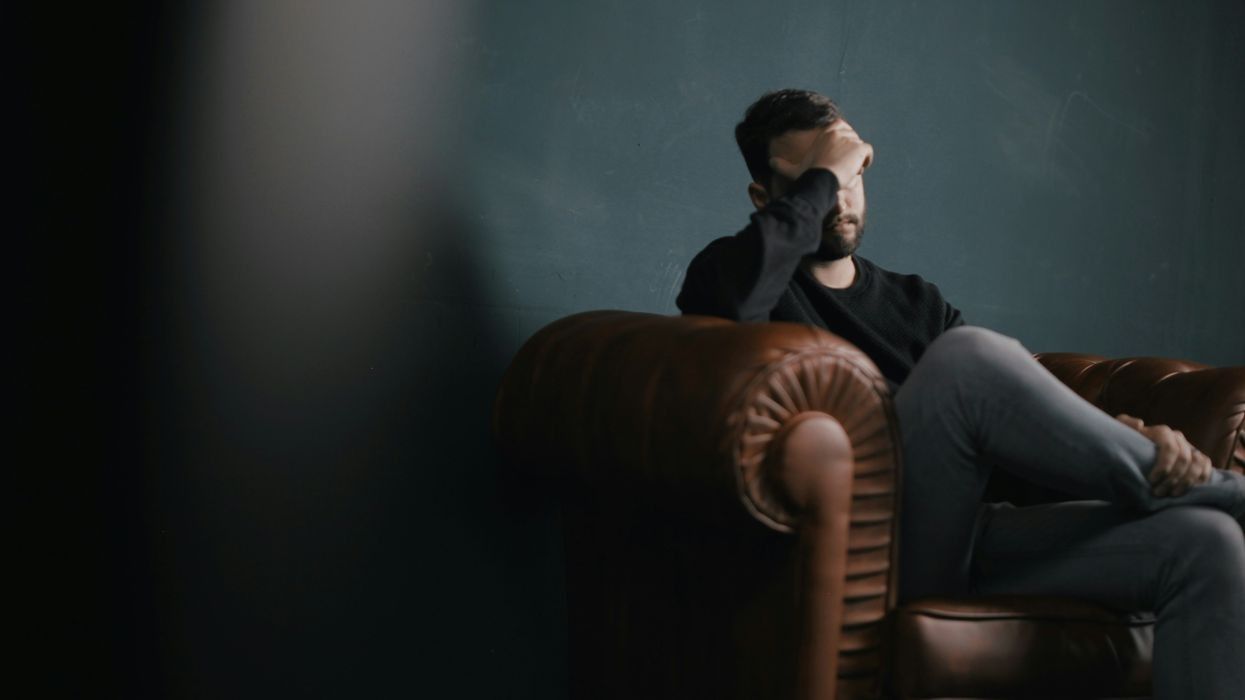For five days, Tinotenda Pudu, a 7-year-old boy from Zimbabwe, wandered alone in one of Africa's most unforgiving landscapes, surviving against all odds. According to reports from CNN, the ordeal began on December 27, when Tinotenda disappeared from his village in northwestern Zimbabwe and unknowingly ventured into the Matusadona National Park—a sprawling, lion-infested wilderness covering nearly 570 square miles.

Surviving the wild
The park, which once boasted Africa's highest lion density, is home to predators like lions and leopards, as well as massive animals like elephants and buffalo. As reported by CNN, Tinotenda survived by eating wild fruits and accessing underground water—a common survival tactic in drought-prone areas, according to Zimbabwe Parks, the country’s wildlife management authority.
In addition to the wild fruits and water he relied on, search teams used drums to try to guide Tinotenda back, demonstrating how deeply the local community rallied around this effort.
Heavy rains initially hampered the search effort, making it difficult for park rangers to find the boy’s footprints, noted the New York Post. However, on December 30, fresh tracks were discovered, ultimately leading to his rescue the next morning.
At one point, Tinotenda reportedly heard park rangers’ vehicles and ran toward the noise, missing them by moments. Fortunately, the team noticed his tracks, which allowed them to locate him.
“This was probably his last chance of being rescued after 5 days in the wilderness,” Mutsa Murombedzi, a local Member of Parliament, said in a post on X, as quoted by CNN.
Sharing her thoughts on X, Member of Parliament Mutsa Murombedzi called the rescue ‘a true miracle.’
💫 A boy missing & found in Matusadonha game park
A true miracle in remote Kasvisva community, Nyaminyami in rural Kariba, a community where one wrong turn could easily lead into a game park. 8-year-old Tinotenda Pudu wandered away, lost direction & unknowingly headed into the… pic.twitter.com/z19BLffTZW
— Mutsa Murombedzi MP🇿🇼 (@mutsamu) January 1, 2025
I managed to get a picture from someone in the Zambezi Valley of the nchoomva fruit that the boy was eating during his ordeal in the Matusadonha wilderness pic.twitter.com/ljnk8vRP6d
— Mutsa Murombedzi MP🇿🇼 (@mutsamu) January 2, 2025
He survived on eating a wild fruit called Nchoomva in Tonga. It is Tsvanzva like or its actually the Tsvanzva. Then water he would go on the dry river bank and use hands and a stick to dig a Mukàla in Tonga or what we call Mufuku in shona and drank water from there. He was very…
— Mutsa Murombedzi MP🇿🇼 (@mutsamu) January 1, 2025
A miraculous rescue
When Tinotenda was finally found on December 31, he was about 30 miles from his village, covered in dirt but alive. He was taken to a local clinic for a preliminary check-up and later transferred to a hospital for further evaluation. According to an update shared by Murombedzi, Tinotenda is in stable condition but will undergo mental health assessments to ensure he hasn’t suffered lasting trauma.
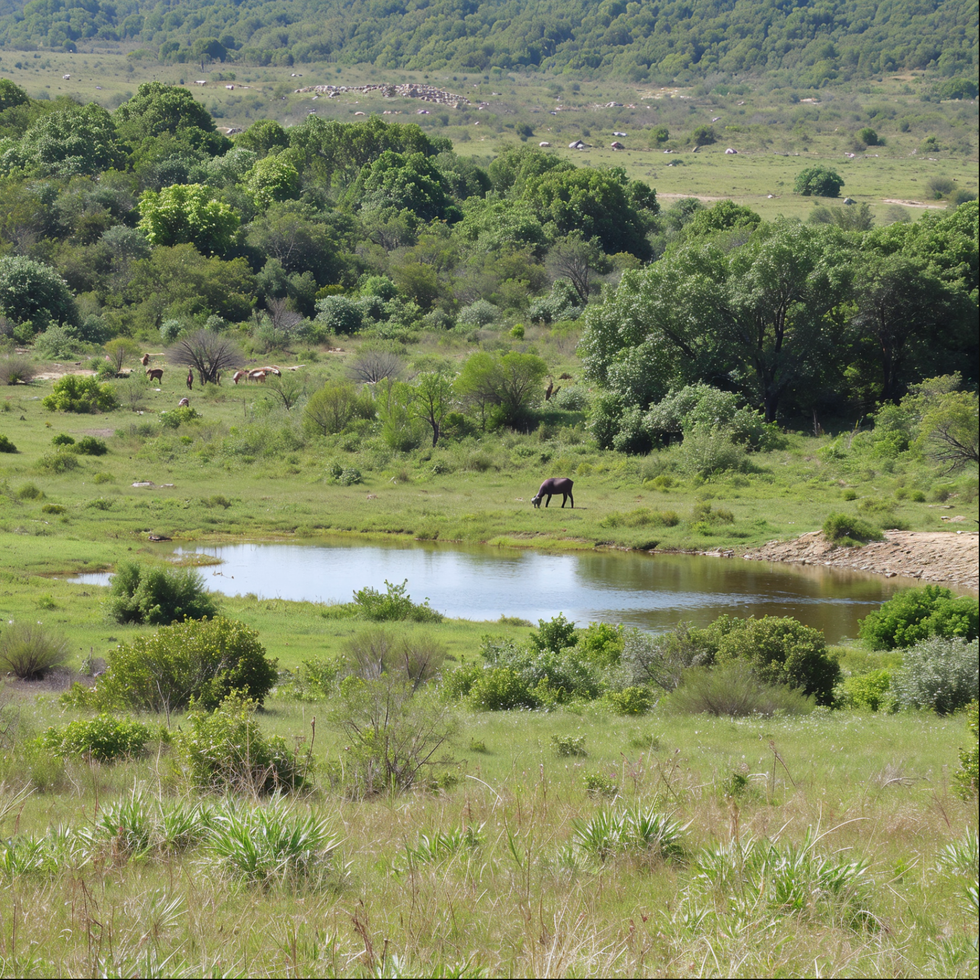
“This is a testament to the power of unity, hope, prayer and never giving up,” Murombedzi said, according to the New York Post.
The story has captured international attention, with many praising the collective efforts of park rangers, police, and community members who refused to give up hope. Tinotenda’s extraordinary survival in a landscape teeming with danger has been described as nothing short of a miracle.
The boy’s survival has become a symbol of resilience and the power of unity in the face of overwhelming odds.





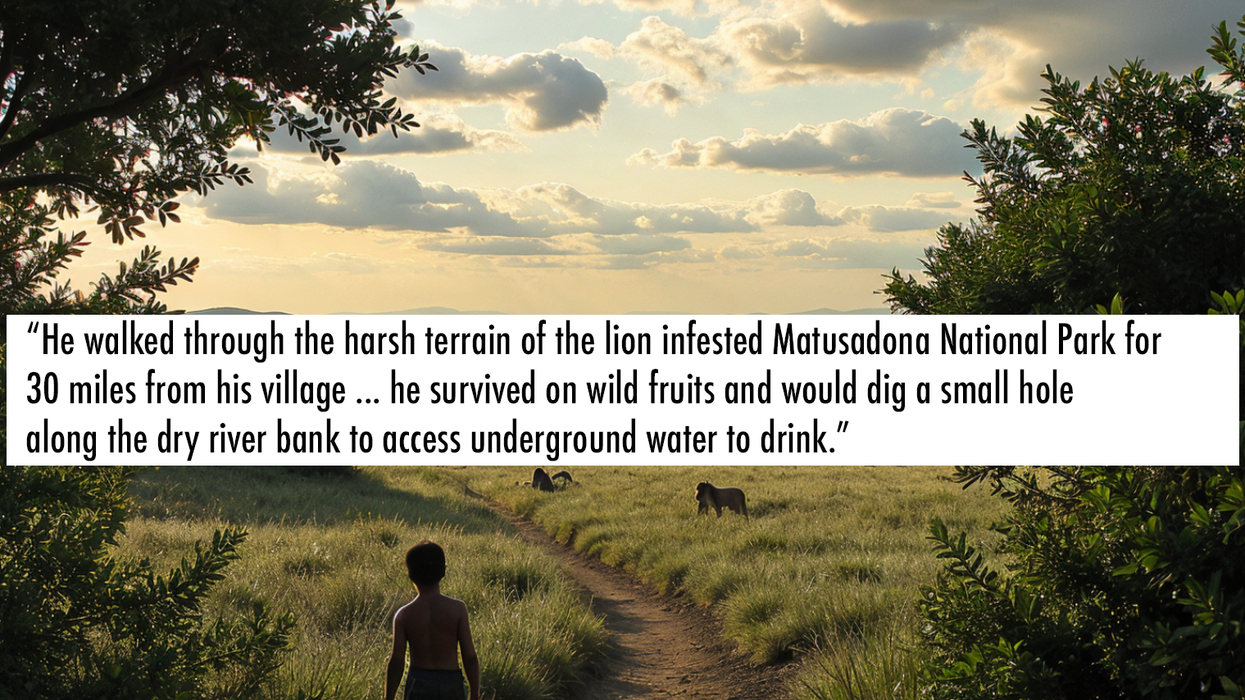






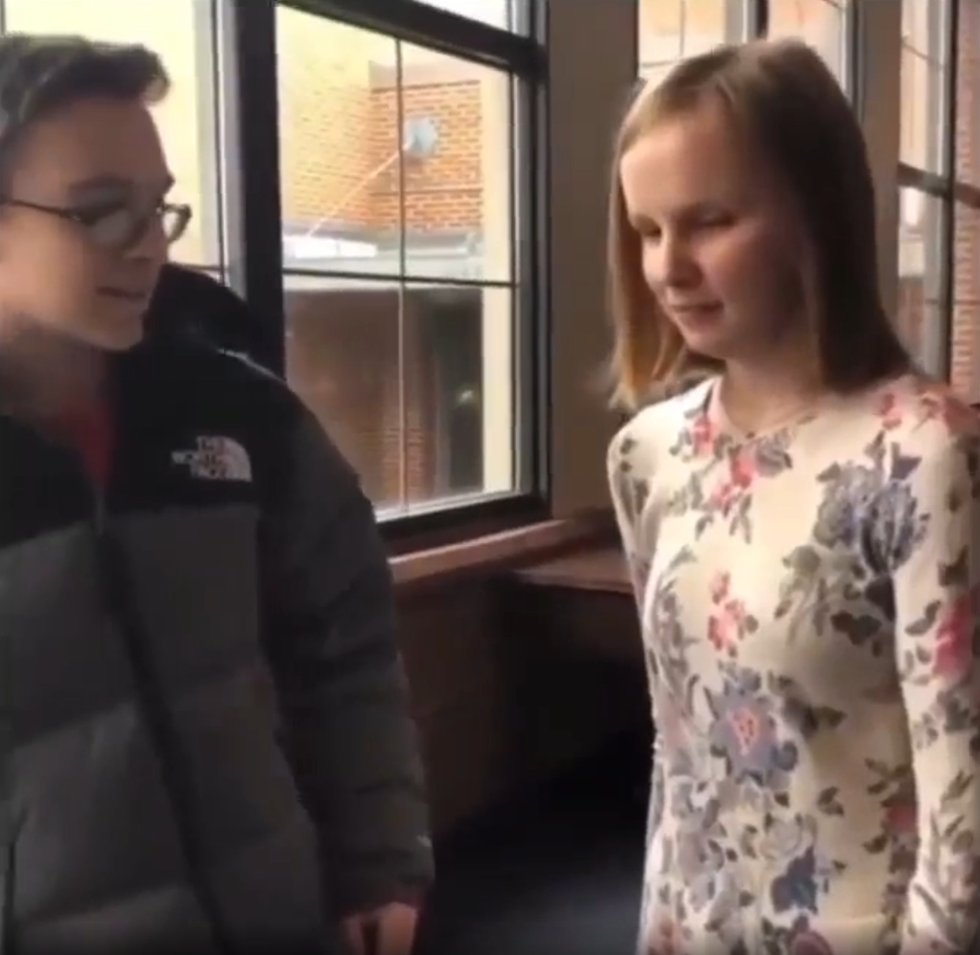 It wasn't even February, so she wasn't expecting what came next.
It wasn't even February, so she wasn't expecting what came next.  The hug came first, the 'yes' took a few moments more.
The hug came first, the 'yes' took a few moments more. 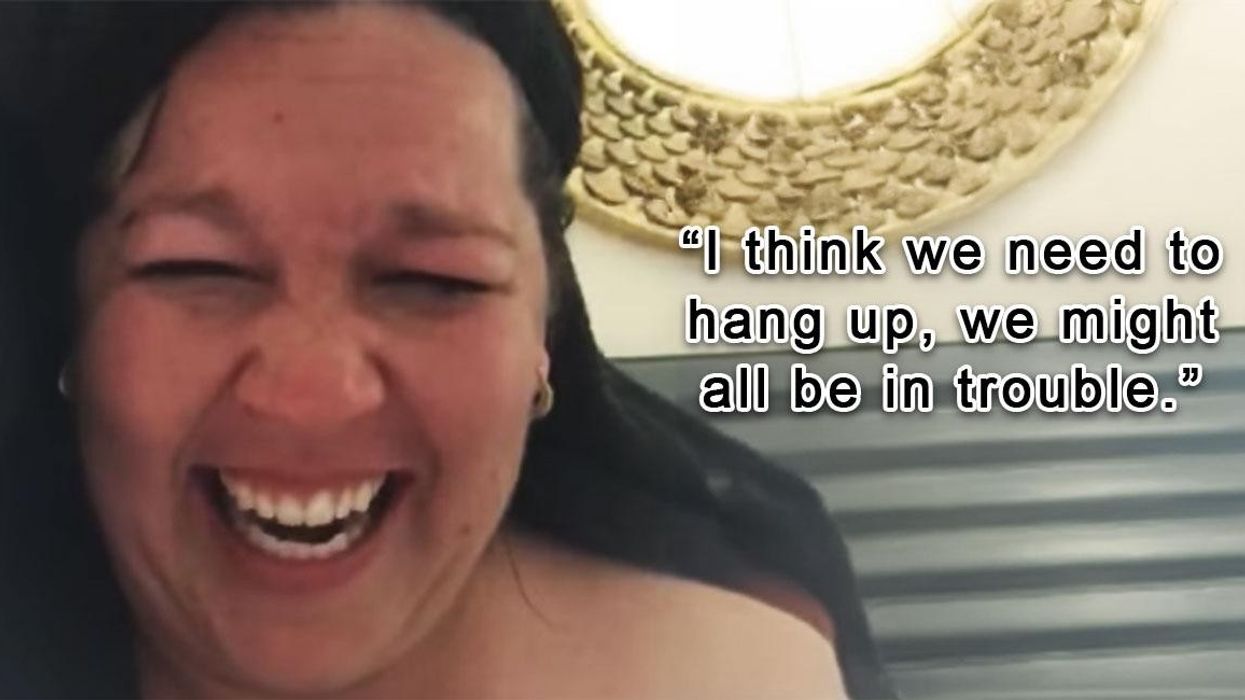
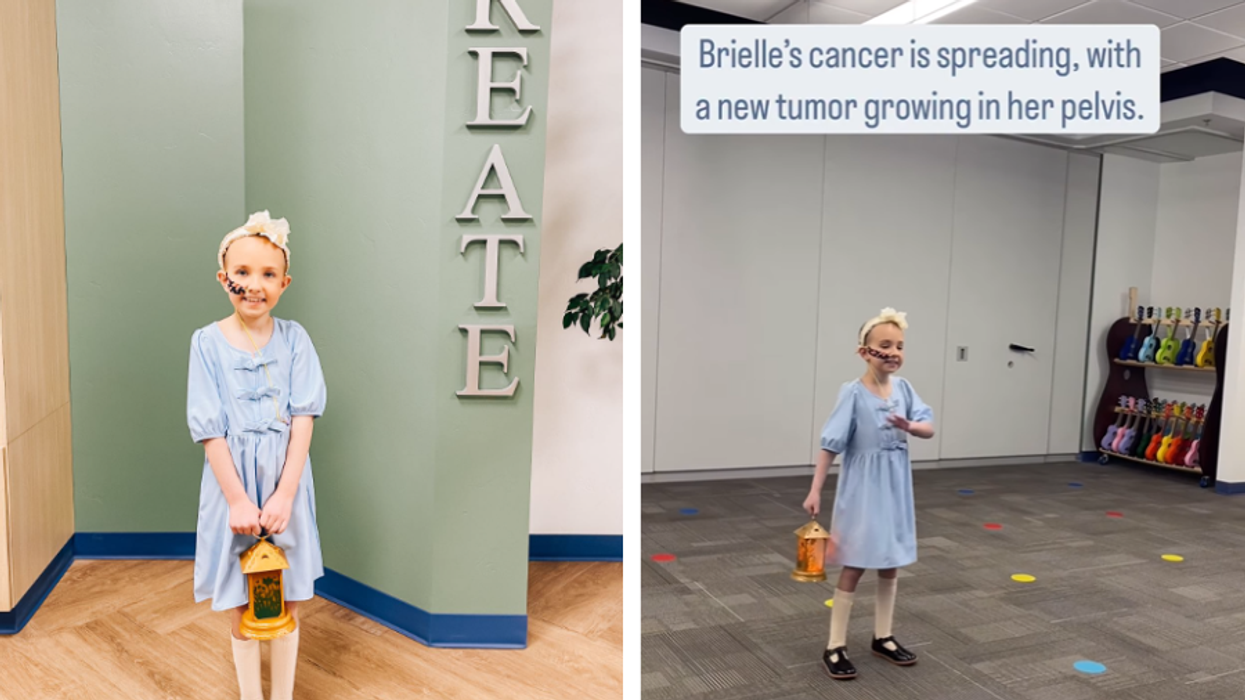

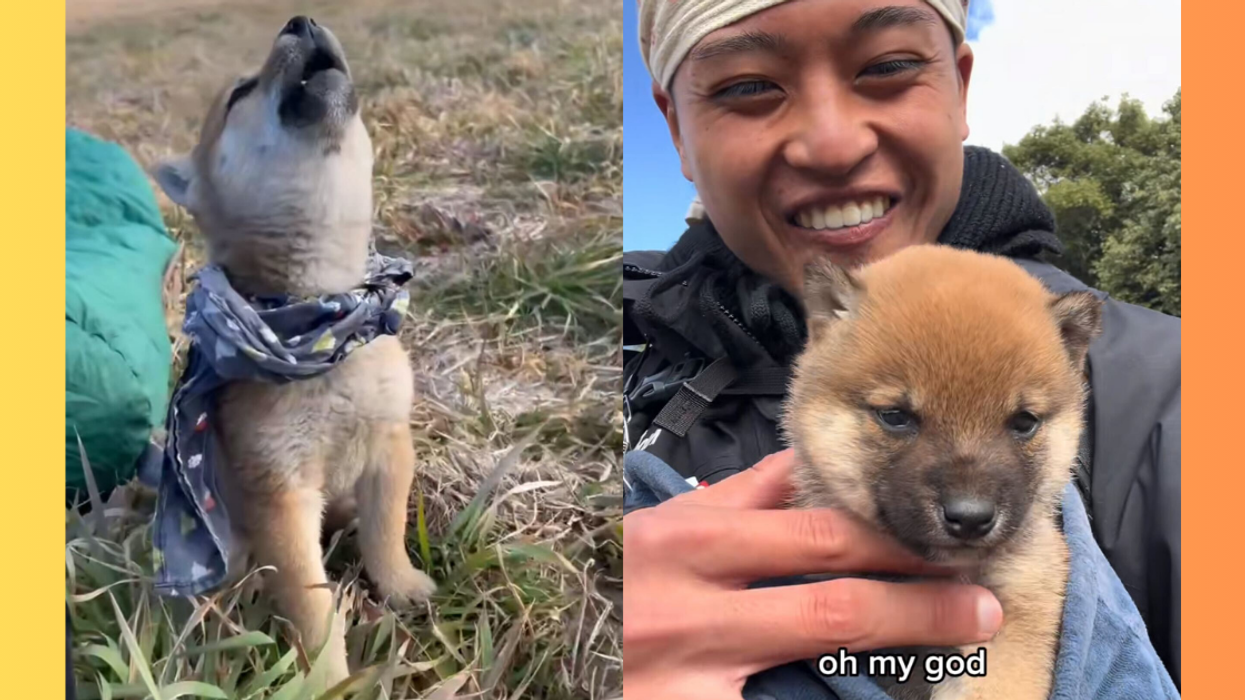



 A golden retriever carries a baseball bat in its mouthCanva
A golden retriever carries a baseball bat in its mouthCanva



